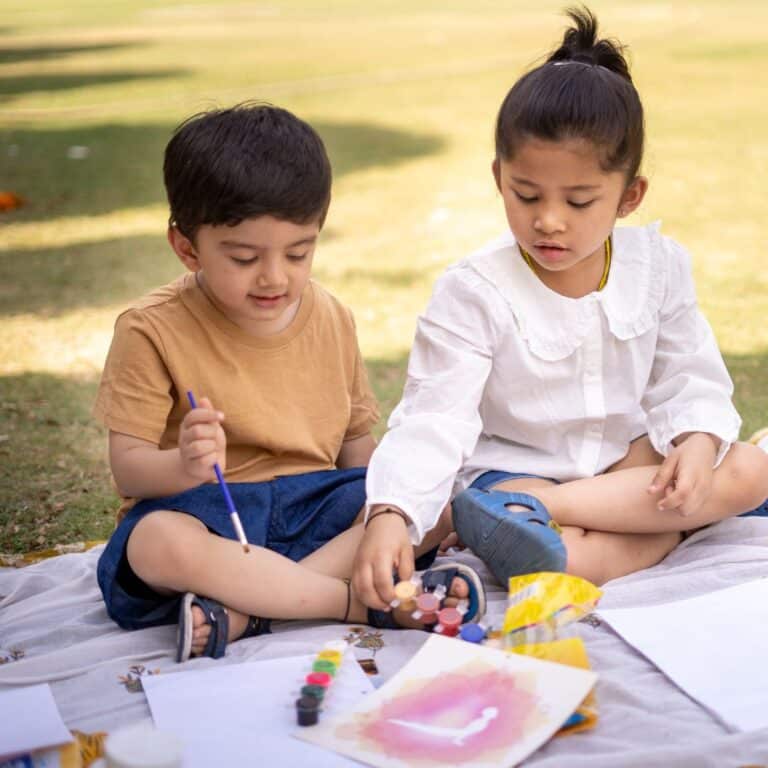Many people think of play as just a fun way for children to pass the time. But play is actually a powerful tool for emotional growth. When children play, they explore their feelings, practice solving problems, build friendships, and learn how to manage their emotions. It helps them grow stronger, more confident, and more caring.
In today’s busy world, schoolwork and scheduled activities often come first. But free play is just as important. Whether children are making up stories, playing with friends, or creating something with their hands, play gives them a safe and healthy way to express themselves and learn new skills.
How Play Supports Emotional Development
1. Helps Children Express and Understand Emotions
Children may not always have the words to describe how they feel, but play helps them express emotions in natural, healthy ways.
- Acting out real-life situations through dolls or action figures can help children process feelings.
- Pretend play allows children to explore different emotions and roles.
- Creative activities like art, music, and storytelling offer ways to express feelings without needing words.
2. Teaches Emotional Regulation
Play gives children safe ways to experience and manage strong emotions like excitement, frustration, or disappointment.
- Games and puzzles build patience and persistence.
- Physical activity helps children release stress and calm down.
- Taking turns and learning how to lose helps children manage emotions.
3. Builds Social Skills and Empathy
Playing with others teaches important social and emotional skills.
- Children learn to share, take turns, and solve problems together.
- Role-playing helps children understand how others feel.
- Working in groups teaches cooperation and compromise.
4. Encourages Problem-Solving and Resilience
Play helps children take risks, try new ideas, and recover from failure.
- Building and rebuilding teaches persistence.
- Games encourage strategy, teamwork, and bouncing back from mistakes.
- Free play promotes creative thinking and confidence.
5. Strengthens the Parent-Child Bond
Play is a great way to build a strong, trusting relationship with your child.
- Shared play creates joy, connection, and safety.
- Children feel more comfortable expressing emotions with supportive adults.
- Parents can use play to teach coping skills and model emotional regulation.
Types of Play That Promote Emotional Growth

Each type of play supports emotional development in different ways:
Here are a few important reasons to teach conflict resolution:
- Pretend Play – Builds creativity, empathy, and understanding of social roles.
- Free Play – Encourages independence, confidence, and emotional flexibility.
- Physical Play – Helps release energy, reduce stress, and support self-control.
- Artistic Play – Offers a safe outlet for emotions children may not be able to express in words.
- Cooperative Play – Strengthens teamwork, conflict resolution, and emotional understanding.
How to Encourage Emotionally Enriching Play
1. Provide Unstructured Play Time
Children need plenty of time to play without rigid rules or adult direction. Allow them to create their own games and explore freely.
2. Play With Your Child
Play together with your child to connect and build trust while modeling social and emotional skills.
3. Create a Safe Space for Play
Provide a stress-free environment where children feel comfortable exploring their emotions through play. Ensure your child has access to a space where you can say “yes” to what your child chooses to do there.
4. Encourage Cooperative Play
Playing with siblings and friends helps children develop important social and emotional skills.



